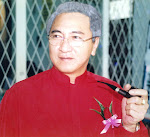THE VATICAN RESPONSE(S) TO OBAMA'S CAIRO SPEECH
Jun. 5, 2009 (CWNews.com)
Church leaders in Rome and in the US have offered a wide range of responses to President Obama's speech at the University of Cairo-- suggesting that prelates, like lay Catholics, have different ideas on the delicate question of relations between Islam and the West.
The Vatican newspaper, L'Osservatore Romano, praised Obama for going beyond routine political pronouncements and “evoking concrete common interests in the name of a common humanity.” Father Federico Lombardi, SJ, the director of the Vatican press office, was more circumspect, but still conveyed a positive impression by saying that the presidential speech was "very important" and again "very significant."
Some Church officials went further in praising President Obama's speech, and even suggesting that the American leader had set forth a series of suggestions that Catholics should welcome. Indeed Father James Massa, who handles inter-religious affairs for the US bishops' conference, saw a "remarkable congruence" between the president's speech and the ideas of Pope Benedict XVI (bio - news).
In a useful analysis for the National Catholic Reporter, Vatican-watcher John Allen reports that many Vatican officials had the same response: they saw Obama's speech as a reflection of policies quite close to those of the Holy See. In fact, Allen believes that the reactions of many officials in Rome could help to explain why the Vatican has taken a generally friendly line in relations with the Obama administration, while the US bishops have been more adversarial. The Vatican, he suggests, has been hoping that under Obama's leadership the US would be a strong ally in efforts to bring peace to the Middle East. The Cairo speech gave new life to those hopes.
But the most perceptive response to the Obama speech-- a detailed analysisby Father Samir Khalil Samir, SJ, for the AsiaNews service-- points out that President Obama's speech was not nearly as detailed as the public statements of Pope Benedict on the prospects for peace in the Holy Land, or on the relations between the West and Islam.
In its treatment of history, Father Samir observes, the president's speech "is somewhat manipulated, perhaps to make it acceptable to Muslims." But he recognizes that this is a political speech, and accepts Obama's desire to frame the issues in the best possible light.
Father Samir praises the president for signalling a new opening for inter-cultural dialogue. And he salutes the American president for two brave statements:
First, President Obama told his Islamic audience that although his father was a Muslim, he himself is a Christian; he quoted the Bible as an expression of his personal faith. "This shows the courage of the man who does not hide his identity," the AsiaNews analyst notes. Obama is fully aware that, as the son of a Muslim (even a lukewarm or lapsed Muslim), he is regarded as an apostate, and the Islamic world does not tolerate apostates.
Second, in his discussion of religious freedom, Obama mentions the violence inflicted on the Coptic Christians of Egypt. Since he was speaking to an Egyptian audience, that passage of the speech was not calculated to win applause, yet the president did not shrink from making his point.
Nevertheless, in other parts of the speech Obama did slide over the facts-- or even fall into error-- in his earnest desire to please an Islamic audience, Father Samir argues. For instance:
- The president says that the Palestinian people are like the Jews of a few generations ago, suffering without a homeland. But the Jews living in Eastern Europe in the diaspora cannot be compared to the Palestinians living today in refugee camps, Father Samir reasons: "the Jews did not suffer because of the Palestinians or Muslims, but in Europe because of the West."
- Obama constructs a "completely exaggerated myth" by saying that the Caliphate of Andalusia showed exercised religious tolerance (in contrast to the Inquisition). In fact, Father Samir notes, the Caliphate regularly repressed Christians and Jews-- and even Muslims like Averroes.
- The president argues that Muslims should join in the effort to protect women's rights, but he does not spell out the need for an end to the gross degradation and humiliation of women in many Islamic countries.
Pope Benedict offers a sharper challenge to the Islamic world by insisting on respect for reason in inter-religious dialogue. And even in his approach to the peace process in the Middle East, Father Samir remarks, "the Pope was far less ambiguous." While President Obama-- to his credit-- insisted on respect for the rights of the Palestinian people, Pope Benedict was more explicit in his support for a two-state solution to the Israel-Palestinian struggle. The American president may indeed be a Vatican ally in the peace process, Father Samir concludes. But to speak of "congruence" between the positions laid out by the president and the Pope is going too far.


.jpg)




No comments:
Post a Comment